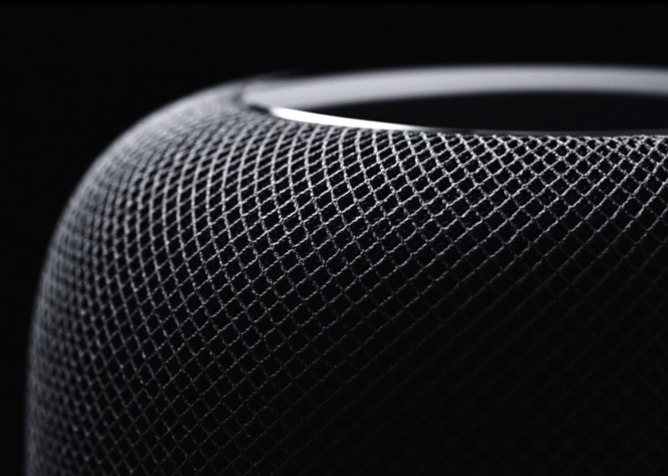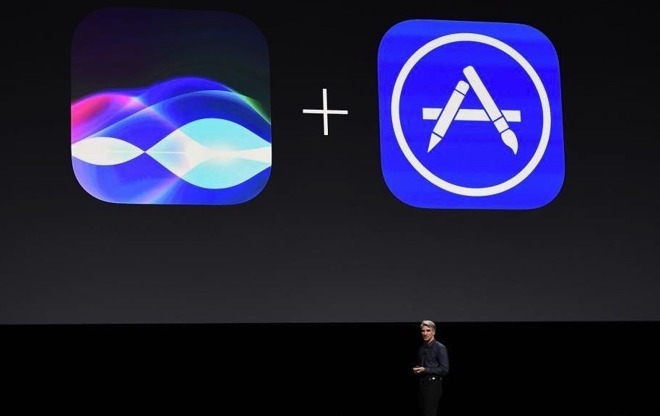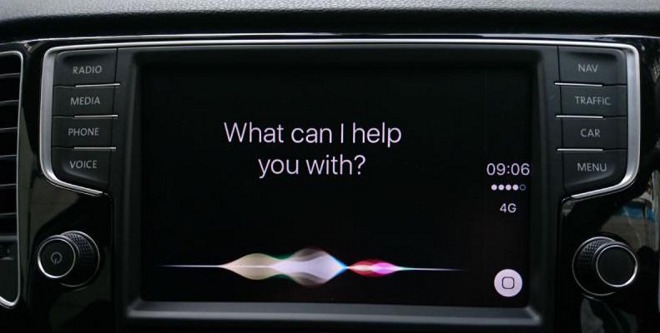The HomePod — now due in 2018 — will mark Apple's first real attempt at making Siri an "ambient" voice assistant. Arguably, though, the company needs to push a lot harder if it wants people to choose Siri over alternatives from Amazon and Google.
As a new homeowner, the number of smarthome devices I own has grown considerably in a matter of months. Whenever possible of course I've picked up something HomeKit-compatible, not just for the sake of AppleInsider, but for easier automation — including integration between devices from different vendors.
A problem that's often overlooked however is controlling devices on the fly. Sure, automation is wonderful and many people carry their iPhones with them all the time, but sometimes you just want to flip on the lights without reaching into your pocket — and what happens when guests and others need to do the same but don't have HomeKit permissions?
Plenty of companies are willing to sell you buttons, switches, sensors, and remotes, but those costs can build up quickly, especially if you've already dropped several hundred dollars (or more) on the accessories you're planning to control.
I've come to realize just how much more useful an ambient Siri could be thanks to growing dependence on my Apple Watch. Instead of fishing for my iPhone or iPad, I can just raise my wrist wherever I am and speak — I can even whisper to avoid waking people up. It makes changing up the office and living room lights a whole lot easier.
The HomePod will probably require to you speak louder than a whisper, but otherwise promises to make whole rooms permanently Siri-enabled, regardless of who's speaking or what gadgets they're carrying.
The difficulty here is that it won't be practical for most people to fully equip a house. At $349 apiece, it'll be hard for families to justify buying more than one or two HomePods, especially when the main purpose is Siri and not high-end audio.
For that reason, Amazon and Google are set to control the smartspeaker market for a while longer. They may not have HomeKit, or even great audio in many cases, but they support enough services and smarthome standards that pricing will give them the upper hand. Consider that you can get six Echo Dots for around $250 or less — and hook them up to existing speakers when sound quality matters.
Apple could choose to produce cheap Dot-like speakers as a solution, but that would be opposed to the company's "premium" sales and design philosophy. So what could it do?
A simple option might be adding Siri to Beats speakers like the Pill+. At $180, it is certainly more palatable than $349, and it's portable to boot.
A better one might be establishing some sort of MFi-style certification that finally puts Siri directly on third-party hardware, not just through AirPlay 2. For whatever reason Apple has resisted this, even as Amazon Alexa and Google Assistant have found their way onto more devices — further entrenching themselves in a way Apple could find hard to reverse.
The more prevalent a voice assistant becomes, the more likely people are to use it. Developers want to focus support on the most popular platforms, which feeds into a loop thanks to customers picking the best-supported hardware. People also want to know that the same commands will work throughout their home, so if they've already bought an Echo, they're probably not going to mix-and-match smartspeakers.
Apple could respond to this pressure. I imagine, though, that this will largely depend on how well the HomePod does — I guess we'll find out next year.
 Roger Fingas
Roger Fingas









-m.jpg)






 Charles Martin
Charles Martin
 Christine McKee
Christine McKee
 Wesley Hilliard
Wesley Hilliard
 Malcolm Owen
Malcolm Owen
 Andrew Orr
Andrew Orr
 William Gallagher
William Gallagher
 Sponsored Content
Sponsored Content








59 Comments
Apple should have been in this market first. Siri is consistently terrible and it’s embarrasing for them that Amazon have come from no where to create this whole Echo/AI market. I just can’t understand what Apple and Google are doing with all their money and knowledge. They are both now playing catch up to Amazon? A shopping store.
I hope Apple intend to do something more than just look out the windows in their new campus.
Oh look! Another pundit telling Apple it must go after the low end market to survive and compete. It’s all about going cheap isn’t it. Cheaper is better by definition, right? So along with a $150 iPhone, a $149 iPad, a $399 Mac with slots, now Apple must come up with a $180 digital assistant to compete with the Echo Dot, a $30 gadget. I’m truly sorry to be responding with extreme sarcasm but we’ve been listening to this go cheap drumbeat every tine a new product category becomes popular. Apple can’t survive without eventually going cheap.
1. Apple is not the largest manufacturer of PCs.
2. Apple is not the largest manufacturer of smartphones.
3. Apple is not the largest manufacturer of tablets.
4. Apple does not have the largest music and video streaming service.
5. Apple is not the largest manufacturer of digital assistants.
Yet Apple has managed to amass a $250 Billion pile of cash, and Apple has managed to rise to a market capitalization of around $900 Billion, all without competing at the low end of any of the markets it is in. And it did this by sticking to its principles of making high quality products that people love to use. So tell me again why Apple must go low to survive?